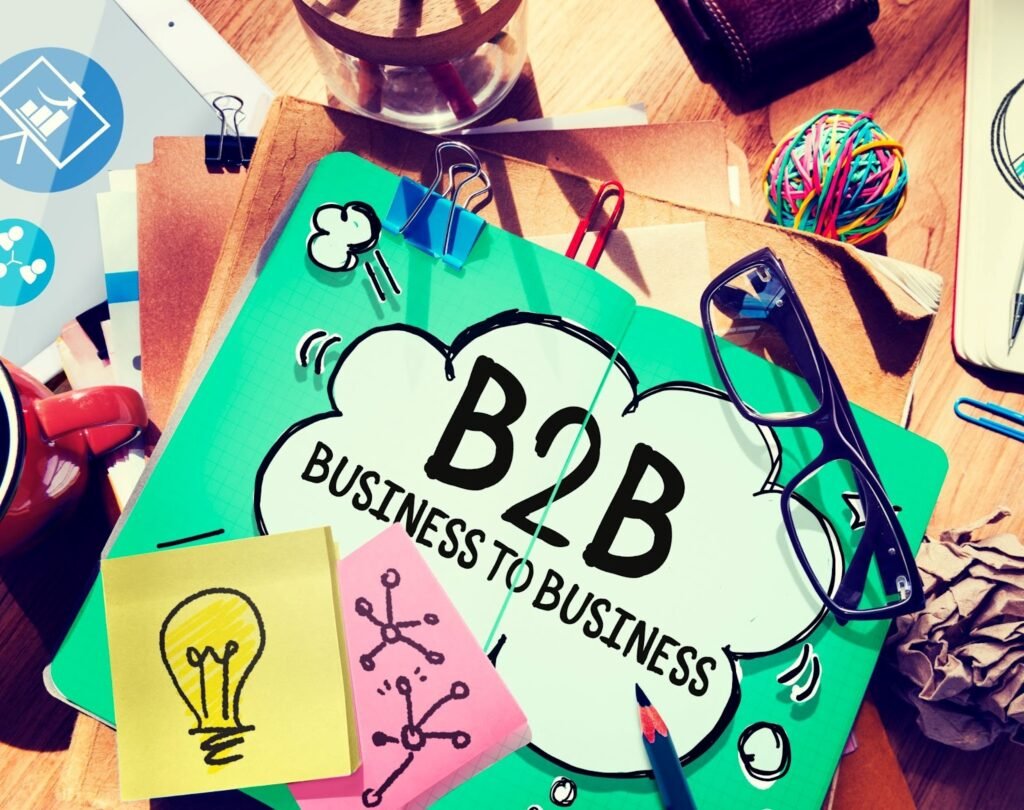
In today’s rapidly evolving business landscape, digital transformation is no longer a luxury but a necessity. Companies of all sizes must adopt new technologies, innovate their processes, and enhance their marketing strategies to stay competitive. However, this digital evolution comes with a unique set of challenges, particularly for businesses in the B2B sector, where customer journeys are long, complex, and multifaceted. For many organizations, the solution lies in partnering with a B2B marketing company that can guide them through the complexities of this transformation.
Digital transformation impacts every facet of a business, from internal operations and employee engagement to customer interactions and overall brand presence. In this blog post, we’ll explore how a company plays a pivotal role in helping organizations navigate the changing digital landscape and why such partnerships are essential for long-term success.
Understanding Digital Transformation in B2B
Before delving into why a company is essential for navigating digital transformation, it’s crucial to understand what this transformation entails. In the B2B world, digital transformation goes beyond the mere adoption of new tools or technologies. It involves rethinking how a company engages with its customers, utilizes data, and aligns its marketing strategies with the digital behaviors and preferences of its target audience.
The integration of digital tools like customer relationship management (CRM) systems, data analytics, artificial intelligence (AI), and marketing automation platforms allows businesses to operate more efficiently and provide a more personalized experience to their clients. However, many B2B businesses struggle to fully harness the potential of these technologies because of the complexities involved in their implementation and use. This is where a specialized company can offer invaluable assistance.
The Challenges of Digital Transformation in B2B
While digital transformation offers numerous benefits, the journey is rarely straightforward. In the B2B sector, there are several challenges that businesses must overcome:
- Complex Customer Journeys: B2B sales cycles are typically much longer and involve multiple stakeholders. The process of identifying and nurturing leads through the sales funnel requires a thoughtful, data-driven approach, which can be difficult to achieve without the right digital marketing strategies in place.
- Data Overload: As businesses adopt more digital tools, they generate vast amounts of data. However, without the expertise to analyze and leverage this data effectively, it’s easy to become overwhelmed. Identifying key insights from data and turning them into actionable marketing strategies is a task best suited for marketing professionals with experience in the B2B sector.
- Evolving Buyer Expectations: B2B buyers are becoming more like consumers, expecting a seamless, personalized experience across all touchpoints. This requires businesses to rethink their digital marketing tactics to align with these new expectations. Achieving this personalization on a large scale can be a daunting task for many organizations, especially those without specialized marketing expertise.
- Integration of Technology: The digital landscape is crowded with tools and platforms, all of which must work together cohesively. This integration of technology—from social media management tools to automated email marketing platforms and CRM systems—requires a level of technical proficiency and strategic thinking that many businesses lack.
Given these challenges, many B2B companies find that their internal teams may not have the capacity or expertise to navigate the complexities of digital transformation on their own. This is where partnering with an experienced company can make all the difference.
How a B2B Marketing Company Facilitates Digital Transformation
A well-established company brings a wealth of experience, expertise, and technical know-how to help businesses overcome the hurdles associated with digital transformation. Here’s how they can guide your organization through the process:
1. Expertise in Data-Driven Marketing
One of the most significant advantages of working with a company is their ability to harness the power of data. By leveraging advanced analytics tools, these agencies can collect and analyze vast amounts of data to uncover insights about customer behavior, preferences, and pain points. This data-driven approach allows businesses to make informed decisions, optimize marketing campaigns, and enhance lead nurturing efforts.
A marketing company can help you implement personalized marketing strategies that are tailored to the unique needs of your clients. From automated email campaigns to personalized landing pages, they have the tools and expertise to deliver targeted messages that resonate with each stage of the customer journey.
2. Streamlined Integration of Marketing Technologies
Digital transformation often involves adopting a variety of new technologies. However, integrating these systems to ensure they work together cohesively can be a daunting task. A skilled marketing company can help manage the integration process, ensuring that your CRM, marketing automation, email platforms, and analytics tools all work seamlessly to drive better results.
This integration allows businesses to operate more efficiently, reducing manual tasks and enhancing the overall customer experience. For example, a well-integrated CRM system can automatically update customer data, trigger personalized email sequences, and alert sales teams when a lead is ready for further engagement.
3. Advanced Content and Social Media Strategies
As B2B companies move toward digital-first strategies, content marketing and social media play increasingly important roles in driving engagement and nurturing leads. A B2B marketing company can help you create valuable content that speaks directly to the pain points of your target audience. This could include blog posts, white papers, case studies, webinars, and more.
Moreover, social media platforms like LinkedIn and Twitter are powerful tools for B2B engagement. A marketing company with expertise in social media management can help you build a strong presence on these platforms, engage with industry influencers, and establish your brand as a thought leader.
4. Scalable Marketing Solutions
As businesses grow, so do their marketing needs. A marketing company can provide scalable solutions that grow with your organization. Whether you need to ramp up your content creation efforts, increase your social media presence, or implement new marketing automation tools, these agencies have the resources and capacity to meet your evolving demands.
By scaling your marketing efforts in alignment with your business growth, you ensure that your digital transformation is not just a short-term project but a long-term strategy for sustained success.
The ROI of Partnering with a B2B Marketing Company
One of the most significant benefits of working with a marketing company is the potential for a high return on investment (ROI). By leveraging their expertise, businesses can streamline their marketing efforts, improve lead quality, and accelerate sales cycles. In turn, this leads to higher conversion rates, more loyal customers, and greater revenue growth.
Moreover, because these agencies bring specialized knowledge and skills to the table, they can help you avoid common pitfalls and mistakes that could otherwise derail your digital transformation efforts. This ensures that your investment in marketing technology, tools, and strategies delivers real, measurable results.
Conclusion:
The digital transformation of your business doesn’t have to be an overwhelming or isolating process. Partnering with a skilled B2B marketing company is an essential step in navigating the complexities of this journey. From data-driven marketing to streamlined technology integration and personalized content strategies, these companies offer the expertise and support necessary to drive success in an increasingly digital world. By aligning with a trusted partner, you can ensure that your business remains agile, competitive, and well-positioned for the future.
